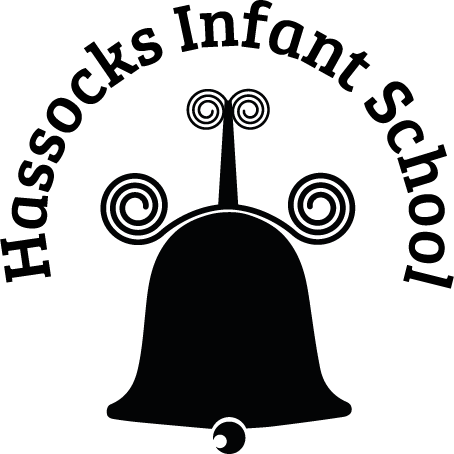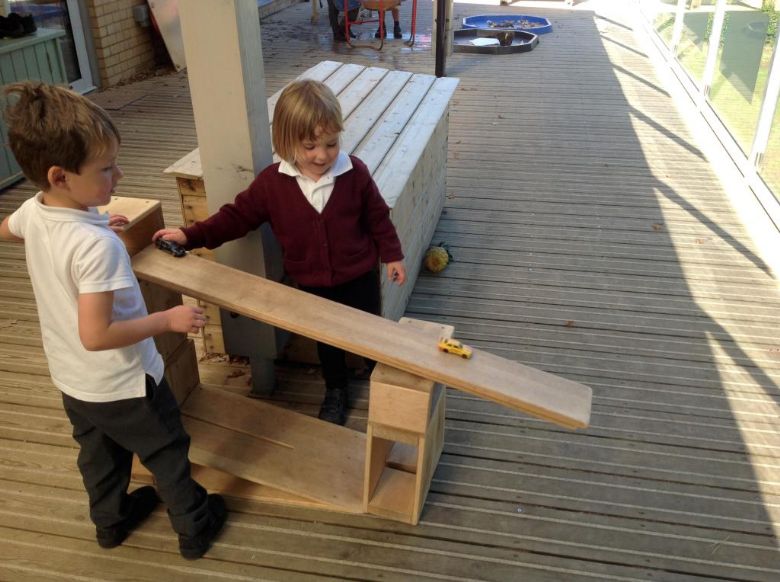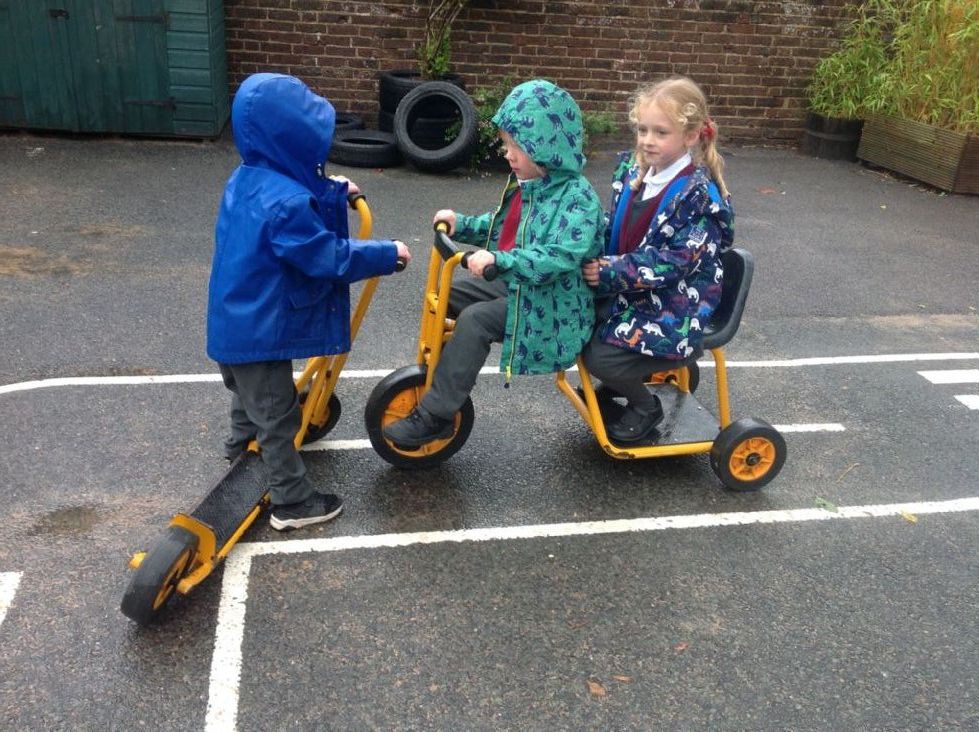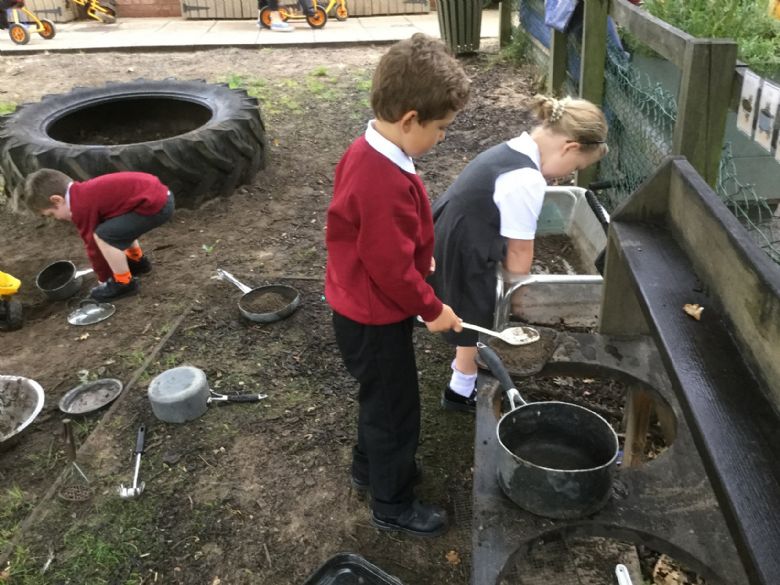Learning
How the curriculum is organised
Across the school the children’s interest and experiences are used as a starting point for learning. In Reception the teaching is planned from the document, ‘Development Matters in the Early Years Foundation Stage’ and in Year 1 and 2 from the ‘National Curriculum’.
How teaching for learning is organised
Our teachers use a range of teaching methods and approaches to ensure the best possible outcomes for all children’s learning. Throughout the school children are encouraged to support each other by contributing to collaborative learning tasks. They work in a wide range of groupings – ability, mixed ability, friendship and randomly in pairs and small groups to truly embed and develop this collaborative learning. Groupings will depend on the learning in hand.
The curriculum will be taught in a variety of ways across the school, to ensure the most effective learning for children. For example, through......
- Whole class workshops/class lessons (for example in writing, reading and mathematics.
- Integrated tasks/ challenges (when several subject areas are being undertaken by groups of children simultaneously.
- Individual or small group teaching to introduce or reinforce a concept or extend a learning activity in a differentiated way to meet children’s learning needs in mixed ability classes
Curriculum Planning takes up a considerable amount of teacher time. All teachers have one designated planning session each week. Teachers plan with their year group partners on a termly, weekly and dailybasis. The planning sessions aim to plan the learning in meaningful context to ensure the children make progress. Planning is available under each year group on this website.
How the daily teaching and learning is organised
At the start of the day the children are encouraged to choose their own learning and parents are welcome in the classrooms to settle their children at an activity. At about 9.30 in all classes there will be a teaching input where a clear learning objective is introduced. Follow up activities will take place in different ways across the school according to the age of the children. For example the class might be taught a new concept in mathematics. This will be followed by carefully planned activities to practice the new skill. During the day there will continue to be opportunities for whole class and small group teaching sessions.
A Community of Learners
We aim to develop a learning community in our school. We encourage everyone to see themselves as a learner, who can learn alongside and from each other. We believe it is important for both adults and children to learn through a variety of approaches but at the heart of this is collaboration. Children learn independently, in pairs or groups with a wide range of peers developing real collaboration skills. This is also modelled by all adults who foster and develop a collaborative learning community. Children from an early age understand what makes an effective learner. Children have discussions about how to be a good learner and how they can develop as a learner.
We are all learners.
Staff Development
We place a high value on continuing professional development and staff have a wide range of opportunities to develop professionally. This may be through attending weekly staff meetings or external courses, peer observations or working alongside other staff. Staff meetings are held throughout the term and the focus for these meeting varies according to the school need and development plan.
Our innovative curriculum and practice attracts many visitors from West Sussex and all staff are involved in supporting these visitors and discussing their own practice. This also gives staff a good opportunity to learn about practice in other schools.
Assessment and Testing... are not the same thing! Children’s learning is assessed in a variety of ways ....... By observing the children, by talking with them about their learning and designing assessment tasks/activities at the end of an area of learning in order to find out what children have learnt.
Self-Assessment
Is known to make a valuable contribution to children’s learning, and children throughout the school are now used to being involved in self-assessment. Children are involved in setting and working towards targets and with adult support develop the skills needed to assess for themselves when those targets have been achieved.
Recording Assessments.
All teachers keep careful records on the assessments made of children and records are passed to the next teacher at the start of each school year. Children are tracked termly using teacher assessment against level descriptions in the core subjects. This enables teachers to closely track progress made by individuals and plan next steps for learning.



